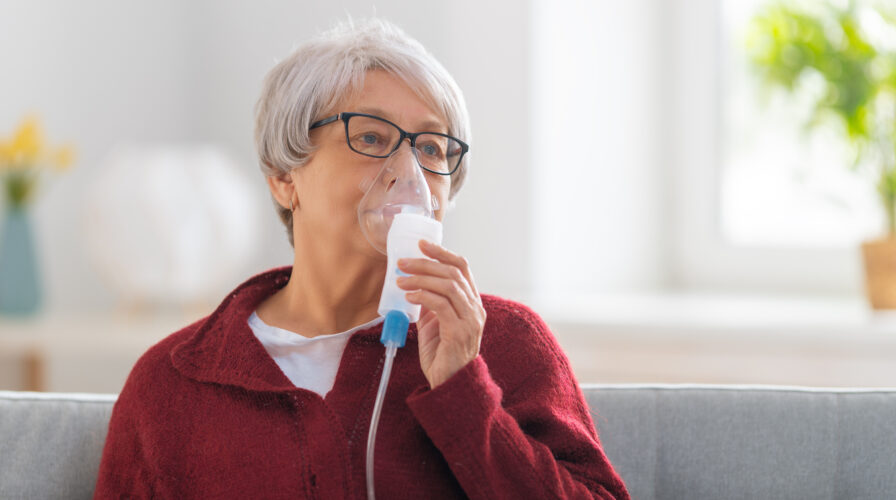
This week, Reunion joined with hospitals across the country to observe Chronic Disease Awareness Day. The CDC defines chronic diseases as “conditions that last one year or more and require ongoing medical attention or limit activities of daily living or both (https://www.cdc.gov/chronicdisease/about/index.htm). They include arthritis, asthma, cancer, COPD, diabetes, heart disease, and viral diseases such as hepatitis C and HIV/AIDS and are responsible for seven out of ten (7/10) deaths in the United States.
Every Chronic Disease Awareness Day, healthcare providers throughout the country raise awareness of these illnesses and provide their communities with resources to prevent and manage them. Some providers work with government legislators and researchers to advocate for policy changes surrounding how we fight and treat chronic diseases. Others foster collaboration and partnerships with caregivers, patients, and communities.
At Reunion, we believe this kind of collaboration is fundamental in changing the face of healthcare in every city we serve. That’s why we provide patients with chronic diseases individualized care plans and access to the best providers in their communities. In this article, we’re looking at the most prevalent chronic diseases to explore how Reunion makes a difference in the lives of patients with these conditions.
The Big Five
While 60% of Americans live with one or more chronic diseases, the World Health Organization (WHO) has designated the most prevalent conditions as the big 5 chronic diseases. These diseases are diabetes mellitus, cardiovascular and chronic respiratory diseases, cancer, and stroke. Three of these conditions — heart disease, cancer, and diabetes — are the leading causes of death and disability in the United States and they affect the health of millions of people around the world.
At Reunion, we not only provide patients with these conditions treatment plans that give them as much independence as possible, but we also give them the tools they need to manage their health and improve their quality of life. While most rehabilitation providers focus solely on physical mobility and independence, this kind of proactive disease management can be fundamental to a patient’s quality of life (Siegert, 2010). Below, we share how Reunion can help patients with diabetes, heart disease, and cancer improve their health and their lives.
Diabetes
Many patients are diagnosed with diabetes in the emergency room after learning their blood sugar is too high or low. Treatment, however, only begins with this diagnosis and blood sugar regulation and inpatient rehab hospitals can play an important role in the long-term recovery of these patients. At Reunion, our team not only helps diabetic patients manage their blood sugar, but provide them with additional care for managing chronic kidney disease or recovering from an amputation due to complications from diabetes.
Diabetes can cause patients to lose kidney function, which is why our hospital educates patients and their families on dialysis treatment options and provides them with physical therapy that helps patients manage their blood pressure. For many patients, managing blood pressure is critical to slowing the progression of kidney disease.
Reunion also provides care for patients recovering from an amputation (https://reunionrehabhospital.c...).
For many of these patients, the recovery process can be physically and emotionally overwhelming but Reunion physical therapists help these patients improve their strength, mobility, balance, use of prosthetics, and physical endurance to maximize their success in recovery.
Cardiovascular Disease
Patients recovering from open-heart surgeries must limit their movement to protect their bodies as they heal. Surgeons may advise these patients to lift no more than five to eight pounds and avoid raising their arms overhead and to the side. At Reunion, we teach patients to adhere to these precautions while carrying out their usual activities of daily living.
Our occupational therapists can help these patients learn to bathe, eat, use the bathroom, groom, and stand or sit up from sitting or lying positions.
Reunion can also support patients rebuilding cardio strength by helping them make changes to their diet and providing them with physical therapy options to improve their cardiovascular endurance.
Cancer
Reunion offers physical, occupational, and speech therapy for patients recovering from cancer. Cancer treatment is exhausting for many patients and Reunion physical therapists can help them improve their quality of life by providing them with strength-building and cardiovascular endurance exercises that decrease symptoms of fatigue. Reunion’s occupational therapists can also help these patients navigate symptoms of fatigue so they can complete activities of daily living and increase their independence.
While most patients with cancer benefit from physical and occupational therapy, patients with head and neck cancer may need additional support with speech and swallowing. Patients with laryngeal cancer may need speech therapy to learn new methods of speaking or how to use technology to communicate. If cancer impacts a patient's ability to move their tongue and jaw, they may also need swallow therapy to improve their strength and coordination related to the muscles involved in swallowing.
In addition to providing care for patients recovering from cancer, heart disease, and diabetes, Reunion provides comprehensive and individualized treatment plans for patients with many other chronic conditions, including stroke, orthopedic, and neurological injuries. As we join providers around the country to improve patient care, we remain committed to walking alongside patients during every step of their recovery journeys. To learn more about the conditions Reunion treats, visit https://reunionrehabhospital.com/patients/services/.
Sources:
Siegert, R. (2010). Goal-setting in rehabilitation: perhaps it is rocket science. Journal of the Australasian Rehabilitation Nurses' Association, 13(1), 4-8. Retrieved from https://www.arna.com.au/ ;
More Articles